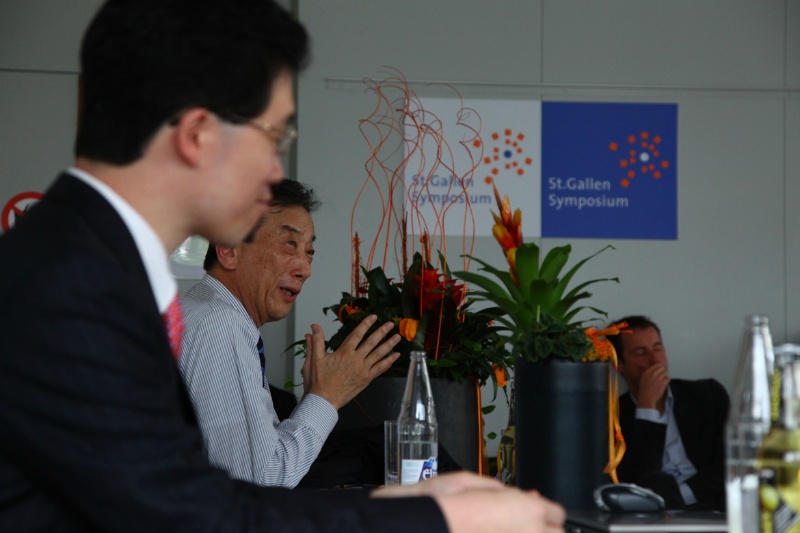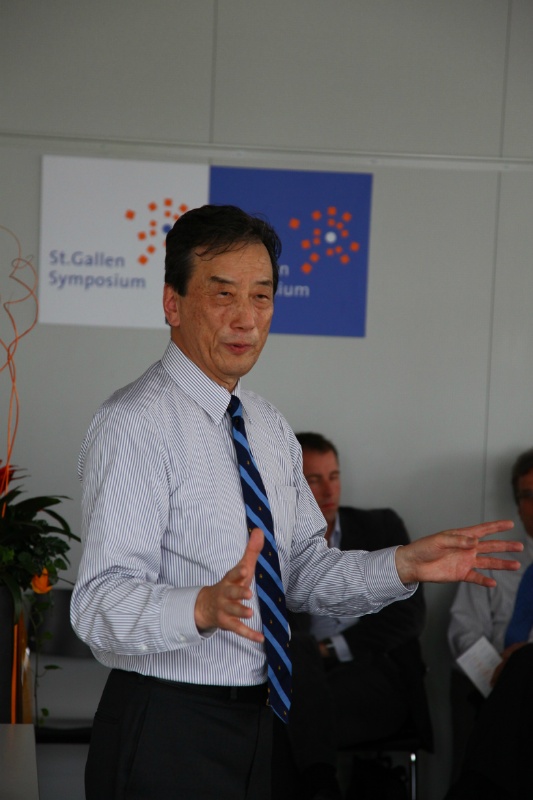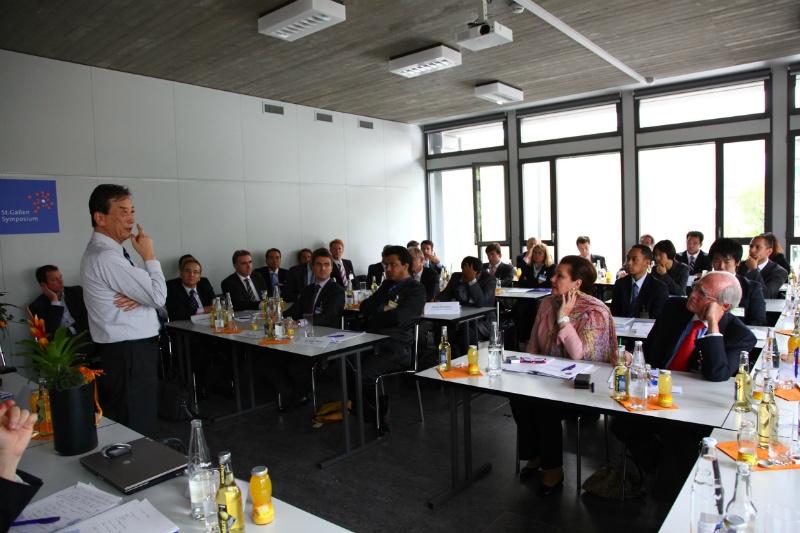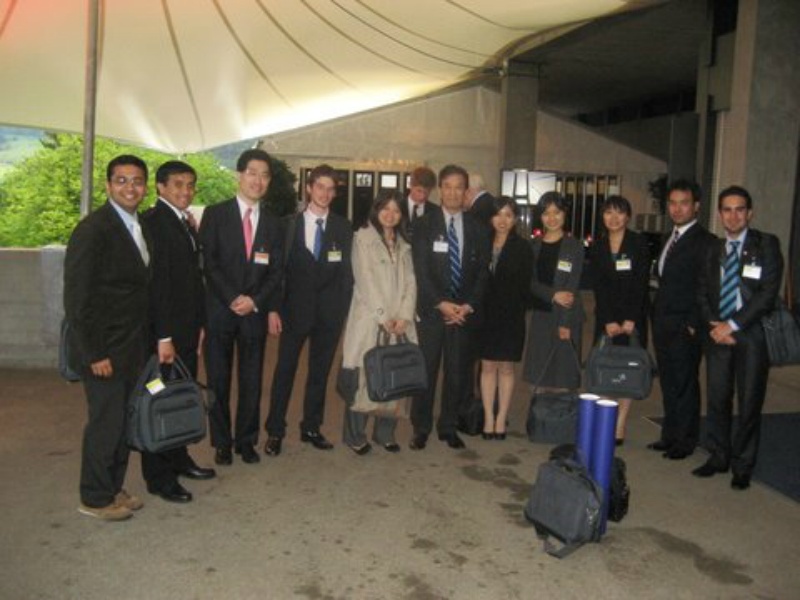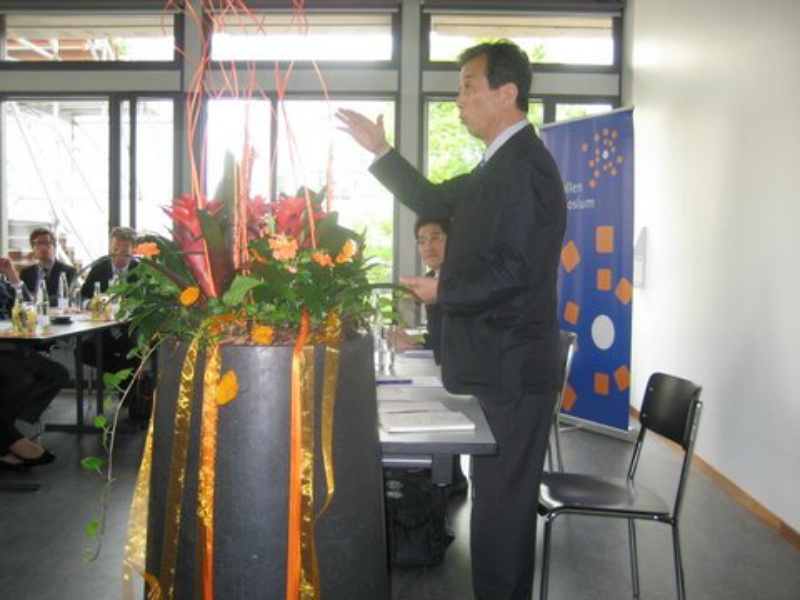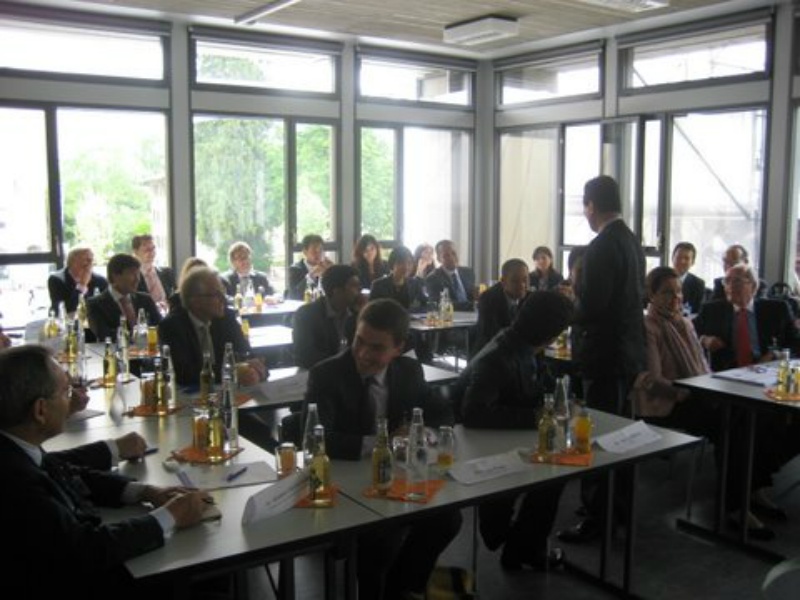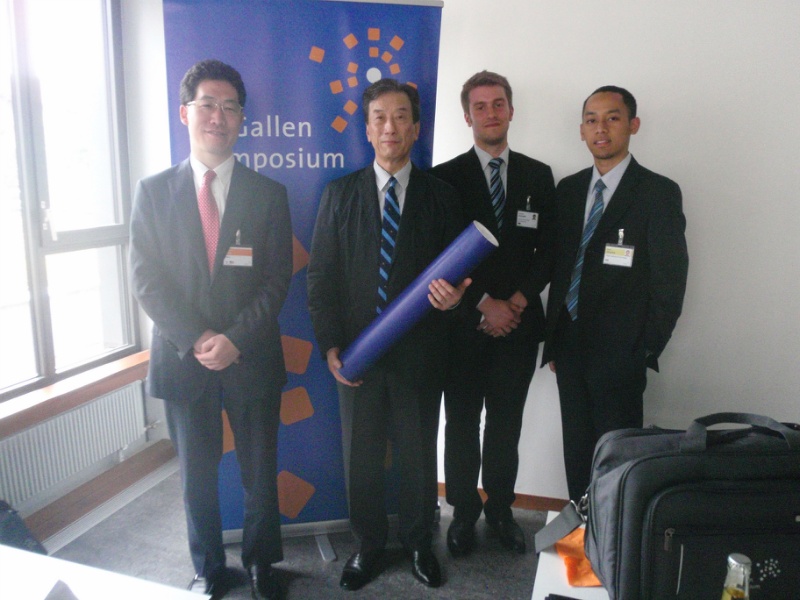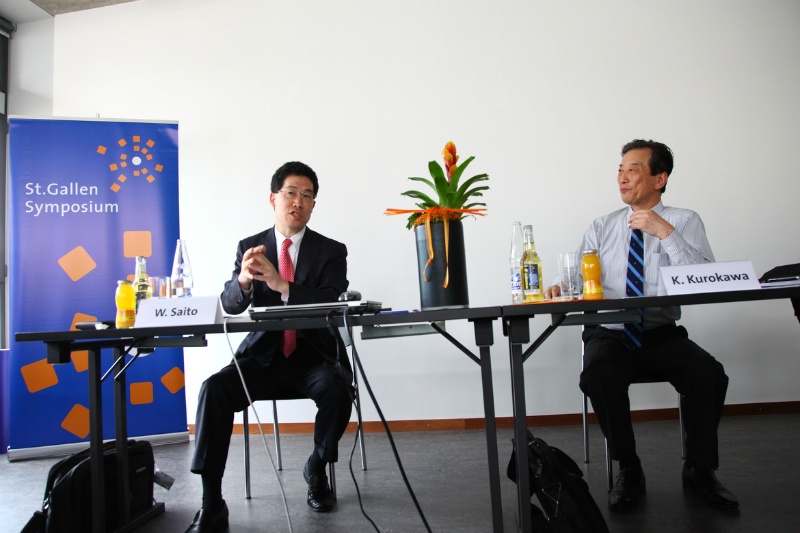Click here for the photos of St Gallen town
From Washingon DC to Zurich via London Heathrow, and then about 50 min. on car, I arrived at the beautiful town of St Gallen at about 4pm, May 11th. Swiss in May is beautiful, and the weather is wonderful (but unfortunately it was raining tonight and tomorrow’s forecast is cloudy plus rain). I took a walk around the town for a while. Asparagus is in season at the market now. In the evening, I went to the reception.
This is my third participation at the St Gallen Symposium, first in 2007 (in Japanese) and second in 2008. The Symposium has a history of 41 years, and everything is organized by the students of St Gallen University.
The purpose of this event is an ambitious one; to invite global leaders in business and other sectors to talk and exchange views with the youths. The age range of participants broadened a bit from last year- focusing graduate students and young people up to 30 years old from the original focus to undergraduate students, plus a special group of people categorized as the ‘Future Leaders’.
I am very pleased to see more Japanese students coming each year. Selection of the participants are through submission of English essays. Quite a number of foreign students studying in Japan also join in the ‘Japan slot’. This is good.
This event is hosted by undergraduate students of the St Gallen University. They are all dressed properly, very good mannered, and take care of things in a crisp, friendly way. Their hospitality makes the overall atmosphere quite pleasant.
I think it is wonderful that the students meet many global leaders in person and the future leaders-to-be who are of the same generation as the students. Through the process of planning this event, they meet many people, effectively broaden views, recognize the difference, or find their own goals.
The theme of this year’s Symposium was ‘Just Power’ (Ref.1).
I participated in the Work Session2; What values for a world out of joint? It turned out to be a very lively, enjoyable session because I limited my talk to just 20 minutes, focusing on major prospectives of world affairs, and spent rest of the time in dialogue with the audience.
Then I had a couple of interviews, and after dinner I continued to enjoy talking with young people until late at night (at around 1am). Basically, I make it my policy to focus on young people in my activities.
The Symposium had many good panels; such as ‘One-on-one: Ribal Al-Assad’ in the morning of 12th, the two sessions in the beginning of 13th;
‘Mega-Diplomacy’ by Parag Khanna and a panel on 'War and Peace at Edgy Times'. I learned a lot from these exciting sessions.
I was interviewed by Dr. Khanna (Ref.1) and his wife last year in Tokyo. They are both journalists/researchers – quite an impressive couple. His new book ‘How to Run the World: Charting a Course to the Next Renaissance’ published early this year is causing a sensation. Of course I purchased a copy at once. It was a pleasant surprise to see him at St Gallen as I was corresponding with him via emails only a month ago, yet did not expect him to see him here.
The panel on ‘War and Peace’ was somewhat humorous since the panelists talked so much making the host to be at a loss. Dr. Galtungs known for peace and conflict studies was especially outstanding here. I think Norway is a great country in that it produces so many people such as Dr. Galtungs. Considering its (small) population, Norway seems to have a high rate of producing such global leader personality as Drs Godal of Global Health or Brundtland, who serve as the leaders of international arena by continuously working to address the difficult issues of the world. In a way, it is like having 50-100 Ms Sadako Ogatas in one nation. I wonder whether this has to do with their being home to the Nobel Peace Prize Conferring Institution, or they have a tradition of dedicating to such activities…
By the way, at a meeting like this, the way the participants speak, their expressions, their witty dialogues in particular, are something to learn from. For example, Q&A session is a very good time for such learning. Putting aside whether you speak as good as they, being present at such place at an early stage of life provides you a wonderful opportunity to think about your goals, or to realize that there are so many wonderful colleagues just about your age. There are many opportunities outside, so I urge all of you youths to seize any opportunity, and go out to the broad world.
Browse through the various web sites of the St Gallen Symposium and enjoy the videos and photos.
Sadly, I had to say Sayonara to St Gallen in the morning of the 2nd day, to fly back to Japan.
